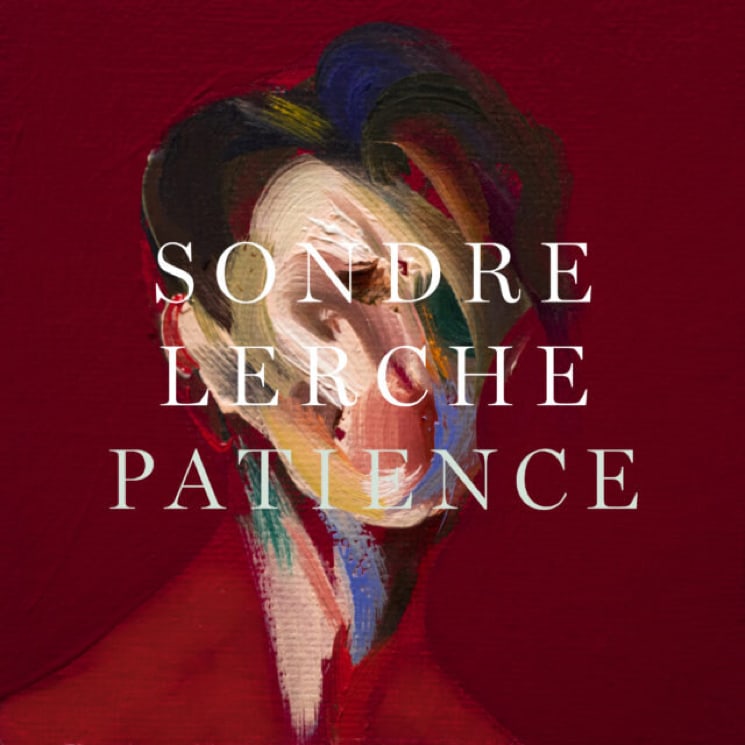After years of wandering across genres, to wildly varying degrees of success, Sondre Lerche has staked out an unprecedentedly pleasant sonic space on his ninth studio album. A manifestation of the phrase "'tis better to have loved and lost than never to have loved at all," this Norway-bred/L.A.-based songwriter's latest album sounds the way an elaborate dark chocolate dessert tastes: rich, sweet and luxurious.
Marrying lush orchestral passages with dense electronic soundscapes, Patience is a pleasure of an earful. Take "Are We Alone Now," a spacy track in which vibraphone and harpsichord relay a simple, catchy melody over droning keys — all making way for wandering vocal delay, a subtle organ, and, to cap it off, a cheesy (but self-aware) saxophone solo that leaves the song in the smooth spot it was destined for all along.
Patience is at its most affecting when Lerche limits himself to (mostly) acoustic, (mostly) orchestral instrumentation. The album's centrepiece, "Why Would I Let You Go," couches a simple story of a couple's transition from total infatuation to regret and heartache inside a dynamic, cinematic sonic landscape. Yes, the lyrics are unforgivably saccharine at times, as when Lerche sings, "In my dreams I love you like I used to." The entire album swings from one clichéd romantic statement to another, with little to distinguish it from any other heartfelt heartbreak narrative. Yet, somehow, Lerche makes it work through the conviction of his delivery, the thoughtful production choices, and the playful, positive pop sensibility that Sondre Lerche has fostered since he released his debut at 18 years old.
At its most pop-indulgent moments, Patience is delightful, if not as memorable as during the orchestral cuts. You can hear shades of Mika on shimmering pop tracks like the radio-friendly "You Are Not Who I Thought I Was" and hints of the Postal Service on the electronics-heavy "That's All There Is." Lerche even goes faux-crooner on the bossa nova cut "Why Did I Write The Book of Love," a tongue-and-cheek piece that is equal parts showtune and elevator music.
At times, Patience verges on being too tongue-in-cheek for its own good. During the album's title track, Lerche inserts a questionable spoken word passage, featuring the lines: "A woman on the verge of tears, after midnight in a parking lot in Denver, told me in confidence: 'You should be on The Voice. Adam would love you.' And I thought: 'shrug emoji.' Wind through a field of green. Purple Heart. We can only take so much, but some have to take so much more."
Sondre Lerche's latest may not be worth picking apart lyrically, but it is a treat for the ears. The exquisite production combined with the pop sensibility on Patience makes it delectable.
(Independent)Marrying lush orchestral passages with dense electronic soundscapes, Patience is a pleasure of an earful. Take "Are We Alone Now," a spacy track in which vibraphone and harpsichord relay a simple, catchy melody over droning keys — all making way for wandering vocal delay, a subtle organ, and, to cap it off, a cheesy (but self-aware) saxophone solo that leaves the song in the smooth spot it was destined for all along.
Patience is at its most affecting when Lerche limits himself to (mostly) acoustic, (mostly) orchestral instrumentation. The album's centrepiece, "Why Would I Let You Go," couches a simple story of a couple's transition from total infatuation to regret and heartache inside a dynamic, cinematic sonic landscape. Yes, the lyrics are unforgivably saccharine at times, as when Lerche sings, "In my dreams I love you like I used to." The entire album swings from one clichéd romantic statement to another, with little to distinguish it from any other heartfelt heartbreak narrative. Yet, somehow, Lerche makes it work through the conviction of his delivery, the thoughtful production choices, and the playful, positive pop sensibility that Sondre Lerche has fostered since he released his debut at 18 years old.
At its most pop-indulgent moments, Patience is delightful, if not as memorable as during the orchestral cuts. You can hear shades of Mika on shimmering pop tracks like the radio-friendly "You Are Not Who I Thought I Was" and hints of the Postal Service on the electronics-heavy "That's All There Is." Lerche even goes faux-crooner on the bossa nova cut "Why Did I Write The Book of Love," a tongue-and-cheek piece that is equal parts showtune and elevator music.
At times, Patience verges on being too tongue-in-cheek for its own good. During the album's title track, Lerche inserts a questionable spoken word passage, featuring the lines: "A woman on the verge of tears, after midnight in a parking lot in Denver, told me in confidence: 'You should be on The Voice. Adam would love you.' And I thought: 'shrug emoji.' Wind through a field of green. Purple Heart. We can only take so much, but some have to take so much more."
Sondre Lerche's latest may not be worth picking apart lyrically, but it is a treat for the ears. The exquisite production combined with the pop sensibility on Patience makes it delectable.
